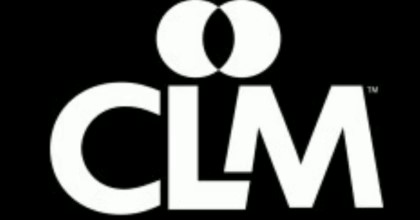Top Tutor App Development Companies
Are you looking for Top software development companies? Don’t worry; we have got that covered for you. We have put-forth the list of the best software developers from around the world. The companies will provide you with state-of-art and fully functional software development services. Customized software development companies listed in TopDevelopers.co possess the expertise that enables us to develop high-quality software applications and fulfill all the essential needs of your business. The list of leading software development agencies have highly efficient teams that will keep track of all the upcoming software technologies so that they can develop better software for you. Our list will be your ally in finding the best software development firms and help your business in the long run.
List of the Best Tutor App Development Companies
-
Employees: 11 to 50
-
Min. Project amount: $25000
-
Country: U.S.A
-
Employees: 11 to 50
-
Min. Project amount: $25000
-
Country: U.S.A
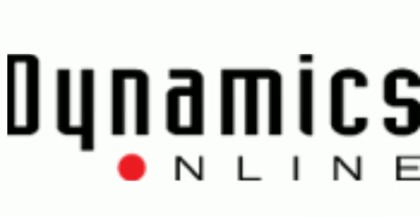
Dynamics Online
-
Employees: 2 to 10
-
Min. Project amount: $25000
-
Country: U.S.A

DIG Marketing
-
Employees: 11 to 50
-
Min. Project amount: $25000
-
Country: U.S.A

OMG Marketing
-
Min. Project amount: $25000
-
Country: U.S.A
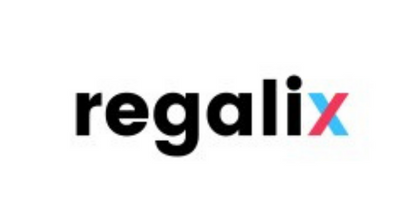
Regalix
-
Employees: 1,001 to 5,000
-
Min. Project amount: $25000
-
Country: U.S.A

SocialHi5
-
Employees: 11 to 50
-
Min. Project amount: $25000
-
Country: U.S.A
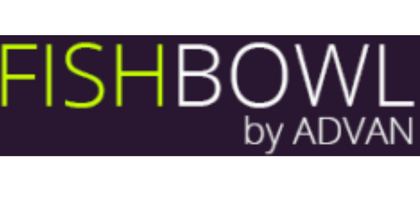
Fishbowl Design
-
Employees: 2 to 10
-
Min. Project amount: $25000
-
Country: U.S.A

WorldLight Media
-
Employees: 2 to 10
-
Min. Project amount: $25000
-
Country: U.S.A
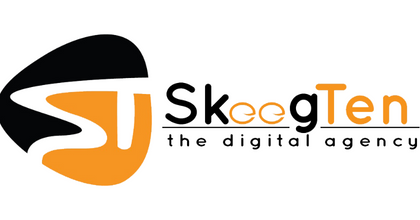
SkeegTen
-
Employees: 11 to 50
-
Min. Project amount: $25000
-
Country: U.S.A
** Buyer's Guide **
- 1. What features should I look for in a tutoring app developed by a company?
- 2. How can a tutoring app cater to different subjects and levels of education?
- 3. Can the app support multiple types of tutoring, such as one-on-one sessions, group classes, and live lectures?
- 4. What is the typical process for developing a tutoring app, from ideation to deployment?
1.What features should I look for in a tutoring app developed by a company?
When evaluating tutoring app development companies, consider features such as user-friendly interface, tutor-student matching algorithms, interactive whiteboard, video conferencing, screen sharing, scheduling and booking system, progress tracking, secure payment integration, and user feedback and rating system.
When choosing a tutoring app development company, look for features that go beyond basic functionalities. Here’s a breakdown of key features to consider for a successful tutoring app:
Seamless User Interface (UI):
Intuitive Design: A user-friendly interface for both tutors and students is essential. It should be easy to navigate, find desired features, and understand functionalities.
Separate Interfaces: Consider separate interfaces for tutors and students, each tailored to their specific needs and actions within the app (e.g., scheduling, communication, resource management).
Intelligent Matching Algorithms:
Matching Expertise and Needs: The app should leverage algorithms to effectively match students with tutors based on subject matter expertise, learning styles, and student grade level.
Availability and Preferences: The matching process should also consider tutor availability, student scheduling preferences, and potential personality compatibility for a more effective learning experience.
Interactive Learning Tools:
Virtual Whiteboard: An interactive whiteboard allows for real-time collaboration between tutors and students. They can share notes, diagrams, equations, and visual aids to enhance learning.
Video Conferencing and Screen Sharing: Integrated video conferencing allows for face-to-face interaction, while screen sharing enables tutors to demonstrate concepts or co-browse learning materials with students.
Streamlined Scheduling and Booking:
Flexible Scheduling: The app should allow students to easily schedule tutoring sessions based on tutor availability and their own calendars.
Convenient Booking System: A user-friendly booking system allows students to confirm sessions, manage cancellations, and track upcoming appointments.
Progress Tracking and Reporting:
Performance Monitoring: The app should offer features to track student progress, such as quiz results, assignment completion rates, and feedback from tutors.
Personalized Learning Paths: Based on progress tracking data, the app might suggest personalized learning paths or recommend additional resources to address specific needs or learning gaps.
Secure Payment Integration:
Multiple Payment Options: Offer students various secure payment options to settle tutoring fees conveniently within the app (e.g., credit cards, debit cards, e-wallets).
Transparent Fee Structure: Clearly display tutoring fees upfront, including any additional charges or hourly rates to ensure transparency for both students and tutors.
Building Trust and Transparency:
User Feedback and Rating System: A system for students to leave feedback and ratings for tutors helps build trust and transparency within the platform.
Dispute Resolution Process: Establish a clear process for handling any disputes or issues that might arise between tutors and students during the learning sessions.
Additional features to consider:
In-App Chat: Allow for real-time communication between students and tutors outside of scheduled sessions for quick questions or clarifications.
Resource Sharing: Enable tutors to share additional learning materials, such as study guides, practice problems, or relevant articles within the app.
Multilingual Support: Cater to a wider audience by offering the app in multiple languages, especially if targeting international students or tutors.
By prioritizing these features, you can choose a tutoring app development company that creates an effective platform for connecting students with qualified tutors. This can lead to a successful learning environment that fosters academic achievement and a positive user experience for both students and tutors.
2.How can a tutoring app cater to different subjects and levels of education?
Reputable tutoring app development companies offer flexibility and scalability to accommodate various subjects and educational levels. They incorporate customizable features and content management systems that allow for easy adaptation to different subjects, curriculums, and learning objectives.
A successful tutoring app shouldn’t be limited to a single subject or grade level. Here’s how development companies can create an app that caters to diverse educational needs:
Subject and Curriculum Flexibility:
Broad Subject Range: The app’s architecture should support a wide range of subjects, from core subjects like math, science, and language arts to more specialized topics like music theory, computer programming, or foreign languages.
Customizable Content Management System (CMS): A flexible CMS allows for adding or removing subjects, uploading relevant learning materials, and tailoring content to specific curriculums or educational standards (e.g., Common Core, IB)
Adapting to Educational Levels:
Matching Tutors with Expertise: The tutor matching algorithm should consider not just subject matter expertise but also the tutor’s experience in teaching different age groups or educational levels (e.g., elementary, middle school, high school, college).
Differentiated Learning Approaches: The app might offer features tailored to different learning styles and levels. For example, younger students might benefit from gamified elements or interactive activities, while high school or college students might require more in-depth explanations and practice problems.
Scalability and Future Growth:
Modular Design: The app’s architecture should be modular, allowing for easy integration of new subjects, features, and learning resources as the platform grows and user needs evolve.
API Integration Potential: Consider the potential for integrating with external learning platforms or educational content providers to expand the range of available subjects and learning materials within the app.
Examples of Features for Different Needs:
Elementary Level: Interactive games, animated lessons, and bite-sized learning modules.
Middle School Level: Quizzes, flashcards, practice problems with answer explanations, and progress tracking with badges or rewards.
High School and College Level: File sharing for exchanging assignments and feedback, document annotation tools for collaborative learning, and access to academic journals or research databases.
By incorporating these elements, a tutoring app development company can create a platform that caters to diverse subjects, educational levels, and learning styles. This ensures a wider user base, a more comprehensive learning experience, and the potential for long-term growth and success within the education technology market.
3.Can the app support multiple types of tutoring, such as one-on-one sessions, group classes, and live lectures?
Yes, top tutoring app development companies design their platforms to support diverse tutoring formats, including one-on-one sessions, group classes, live lectures, and pre-recorded lessons. They implement robust communication and collaboration features to facilitate seamless interaction between tutors and students in different settings.
To cater to various learning preferences and needs, a well-designed tutoring app should offer multiple tutoring formats:
One-on-One Sessions:
- Personalized Learning: This remains a core feature, allowing students to connect with tutors for individualized attention, focused problem-solving, and tailored learning plans.
Group Classes:
Cost-Effective Option: Group classes provide a cost-effective way for students to learn together, benefit from peer interaction, and participate in discussions.
Interactive Features: The app should facilitate interaction within groups through features like in-app chat, polls, or collaborative whiteboards.
Live Lectures:
Virtual Classroom Experience: Live lectures allow tutors to broadcast lessons to a larger audience, similar to a virtual classroom setting.
Real-Time Engagement: Interactive features like live Q&A sessions or chat functions can keep students engaged and allow for clarification during lectures.
Pre-Recorded Lessons:
Flexibility and Accessibility: A library of pre-recorded lessons offers students flexibility to learn at their own pace and revisit materials as needed.
Content Organization: The app should organize pre-recorded lessons by subject, topic, and difficulty level for easy searchability and navigation.
Supporting Features for Different Formats:
Scheduling and Booking: The app should allow scheduling for individual sessions, group classes, and live lectures, catering to student and tutor availability.
Communication Tools: Integrate features like in-app chat, video conferencing, and screen sharing to facilitate communication and collaboration across all tutoring formats.
Content Management System: A robust CMS allows tutors to upload pre-recorded lessons, create presentations for live lectures, and share additional learning materials relevant to each format.
Additional Considerations:
Security and Privacy: Ensure the app has robust security measures in place to protect student data and privacy, especially during group sessions or live lectures.
Recording and Playback Options: Consider offering the ability to record live lectures or group sessions for students to revisit the material later.
By providing these features and functionalities, a tutoring app development company can cater to a wider range of learning styles and preferences. This flexibility can attract a larger user base, enhance student engagement, and contribute to the overall success of the tutoring platform.
4.What is the typical process for developing a tutoring app, from ideation to deployment?
The development process for a tutoring app typically involves phases such as requirements gathering, design, development, testing, deployment, and post-launch support. Reputable companies follow a collaborative approach, involving clients at every stage to ensure the app meets their vision and requirements.
Developing a tutoring app involves a series of collaborative steps to create a user-friendly and effective learning platform. Here’s a breakdown of the typical process:
1. Ideation and Requirements Gathering:
Understanding Your Vision: The development company will engage in discussions with you to understand your vision for the app, target audience (students, tutors, or both), and the unique features you want to incorporate.
Market Research and Competitor Analysis: They might conduct market research to assess the educational technology landscape and analyze existing tutoring apps to identify strengths, weaknesses, and potential opportunities for differentiation.
Defining Features and Functionality: Through workshops or brainstorming sessions, you’ll collaborate with the development team to prioritize features, define functionalities, and create a clear roadmap for the app’s development.
2. Design and Prototyping:
User Interface (UI) and User Experience (UX) Design: The development team will translate your vision and user needs into a user-friendly and visually appealing app design. The focus will be on intuitive navigation, clear information architecture, and a positive learning experience for both students and tutors.
Wireframing and Prototyping: Creating low-fidelity or clickable prototypes allows you to visualize the app’s layout, user flow, and core functionalities. This is a great opportunity to provide feedback and iterate on the design before extensive development begins.
3. Development and Integration:
Mobile App Development: The development team brings the app to life using programming languages and frameworks suited for mobile app development (e.g., Swift for iOS, Kotlin for Android).
API Integrations: Tutoring apps often integrate with various third-party APIs for functionalities like online payment processing, video conferencing tools, or educational content providers.
4. Testing and Quality Assurance:
Rigorous Testing: The app undergoes rigorous testing phases to identify and fix bugs, ensure smooth functionality across different devices and operating systems, and guarantee optimal performance.
User Testing: Involving potential students and tutors in the testing process allows for valuable feedback on the app’s usability, intuitiveness, and effectiveness as a learning platform.
5. Deployment and Launch:
App Store Optimization: The development company can help optimize your app store listing with relevant keywords and descriptions to increase discoverability within app stores (e.g., Apple App Store, Google Play Store).
App Launch and Marketing: The app is finally launched on the targeted app stores. However, the work doesn’t stop there. A good development company might collaborate with you on marketing strategies to promote the app and reach your target audience (students and/or tutors).
6. Post-Launch Support:
Bug Fixes and Updates: The development company will typically provide ongoing support to address any bugs or issues that arise after launch, and release updates to improve features or add new functionalities based on user feedback.
Performance Monitoring and Analytics: Tracking app usage data and user feedback allows for ongoing performance monitoring and data-driven decision-making to optimize the app and enhance the learning experience.
Collaborative Approach:
Reputable tutoring app development companies emphasize a collaborative approach throughout the process. They will keep you informed about progress, involve you in decision-making stages, and ensure the final product aligns with your vision and meets the needs of your target audience.
Development Timeline:
The timeframe for developing a tutoring app can vary depending on several factors, such as:
Complexity of Features: Apps with basic functionalities will take less time to develop compared to apps with features like live lecture recording or gamified learning elements.
Platform Development (Native vs. Cross-Platform): Developing native apps for iOS and Android separately takes longer than using a cross-platform development framework. However, native apps often offer better performance and user experience.
Here’s a general range to consider:
Basic Tutoring App (3-6 Months): This might include features like user profiles, tutor matching, scheduling, one-on-one video conferencing, and basic in-app chat functionalities.
Standard Tutoring App (6-12 Months): This range covers apps with additional features like group class support, pre-recorded lessons, interactive whiteboards, and basic progress tracking functionalities.
Advanced Tutoring App (Over 1 Year): Highly complex apps with features like live lecture recording, AI-powered tutoring tools, or integration with advanced learning management systems would require a longer development timeline.
By working closely with a reputable development company and following a structured development process, you can transform your tutoring app idea into a reality and create a valuable platform for student learning and academic success.

